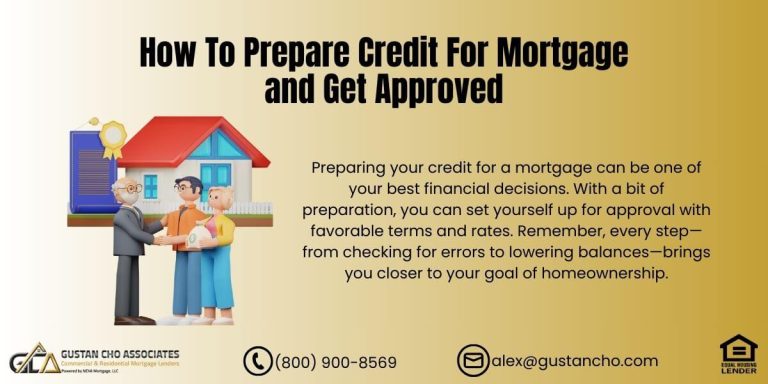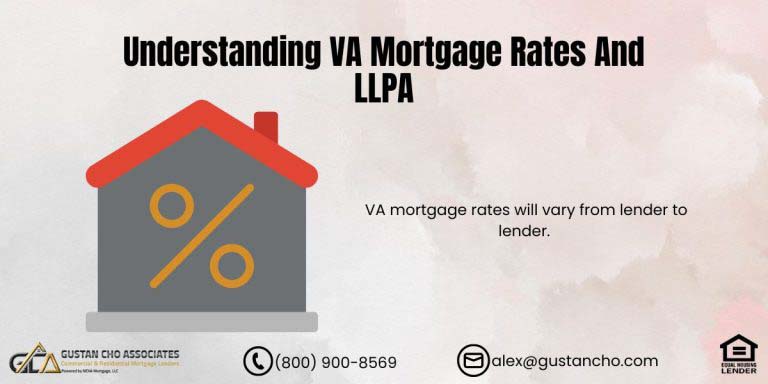Advice and Tips for Home Buyers in 2024: How to Qualify for a Mortgage and Get the Home of Your Dreams
Buying a home is one of the most important decisions you will make. Whether you are a first-time home buyer or looking to move, the process can seem complicated. But with the right advice and tips, you can confidently approach the homebuying journey.
At Gustan Cho Associates, we hear from home buyers every day asking for advice and tips on buying a home and qualifying for a mortgage. From first-time home buyers to those looking to refinance, we’re here to help you every step of the way. In this updated 2024 guide, we’ll cover everything you need to know about qualifying for a mortgage, avoiding common pitfalls, and making smart decisions as a homebuyer.
Getting Started with the Home Buying Process
One of the most common questions we get from home buyers is, “Where do I even begin?” The good news is that the first step is easier than you think: start by understanding your financial situation. Before browsing homes or considering mortgage lenders, closely examine your credit score, savings, and budget.
Ready to Buy Your Dream Home? Let Us Help You Qualify for a Mortgage!
Contact us today to find out how we can help you get pre-approved and start your home buying journey.
Step 1: Know Your Credit Score
Your credit score greatly determines your ability to qualify for a mortgage and what interest rate you’ll get. In 2024, lenders are looking for more credit stability than ever before, so it’s important to check your credit early and improve it if necessary. Lenders will check your FICO score, which ranges as follows:
- Excellent Credit: 781-850
- Good Credit: 661-780
- Fair Credit: 601-660
- Poor Credit: 501-600
- Bad Credit: Below 500
You don’t need perfect credit to buy a home, but if your score is below 600, you may need to explore options like FHA or non-QM loans that are more forgiving of lower credit scores.
Step 2: How Much Can You Afford?
Remember, it’s important to understand the difference between the amount you qualify for and the amount you can truly afford. While a lender might approve you for a large loan, you should consider your monthly expenses, lifestyle, and financial goals before deciding on your budget. To start, use a mortgage calculator to determine your monthly payment based on the home’s price, property taxes, and insurance.
Don’t forget to account for other costs like utilities, maintenance, and unexpected expenses. You’ll want to feel comfortable with your payment, not stretched thin.
Advice and Tips for Home Buyers: Qualifying for a Mortgage in 2024
The home buying process can’t move forward without mortgage pre-approval. Here’s what you need to know about qualifying for a mortgage in 2024.
Step 1: Gather Your Financial Documents
Lenders will need specific documents to confirm your financial well-being. You will have to submit the following in 2024:
- Pay stubs (typically for the last 30 days)
- Bank statements (usually from the past 2-3 months)
- Tax returns (for the last 2 years)
- W-2 forms (for the last 2 years)
- Proof of assets (including savings accounts, retirement funds, etc.)
If you’re self-employed, you may need to provide additional documentation, such as business tax returns or a profit and loss statement.
Step 2: Choose the Right Lender
Selecting the right lender is essential. Different lenders offer a different range of mortgage products and have distinct eligibility criteria. For instance, traditional banks often have lender overlays—extra rules on top of standard loan guidelines. If you have a lower credit score or past financial issues like bankruptcy or foreclosure, a bank may not be the best option.
At Gustan Cho Associates, we specialize in loans for buyers with credit scores under 600. We don’t have those additional overlays that can disqualify borrowers. Whether you need an FHA loan, VA loan, or non-QM loan, we can help.
Credit Advice and Tips for Home Buyers
How can I improve my credit to qualify for a mortgage? Your credit score significantly impacts your mortgage rate. Here are quick tips to improve your credit before applying:
- Pay down credit cards: Remember to maintain your balance at or under 10% of your credit limit. Maxed-out cards can drastically lower your score.
- Avoid new credit: Every fresh credit check may decrease your score slightly. Refrain from opening new credit accounts before or during the home loan process.
- Don’t close old accounts: Shutting down old credit accounts can lower your credit score as it reduces your credit history. It’s best to keep these accounts open, even if you’re not using them regularly.
- Address any late payments: If you have recent late payments, bring those accounts current as soon as possible. Late payments can stay on your report for seven years, but the impact lessens.
How do mortgage rates work in 2024?
The interest rates for mortgages can greatly affect the amount you pay each month. In 2024, rates are expected to fluctuate based on inflation and economic conditions. Here’s a general idea of what you can expect based on your credit score:
- Excellent Credit (781-850): You’ll likely qualify for the lowest rates available.
- Good Credit (661-780): You may still get competitive rates, but they’ll be slightly higher than someone with excellent Credit.
- Fair Credit (601-660): You’ll see higher rates, but you can still qualify for an affordable loan, especially if you choose an FHA loan.
- Poor Credit (501-600): Your rates will be higher, and you may need to explore government-backed loans like FHA or VA loans.
- Bad Credit (Below 500): Qualifying for a traditional mortgage may be difficult, but non-QM loans or hard money loans could be an option.
What mistakes should I avoid when buying a home?
Making several common errors can harm your ability to qualify for a mortgage or finalize the purchase of your home.
- Don’t make major purchases: Avoid buying a new car, furniture, or other big-ticket items. Lenders will check your credit and finances again before closing; large purchases could affect your approval.
- Don’t apply for new credit: Your credit score takes a small hit each time it is checked. It’s best to hold off on applying for new credit accounts until after the closing.
- Don’t change jobs: Lenders like stability. Even if you’re getting a higher-paying job, changing jobs during the mortgage process can raise red flags and delay your approval.
- Don’t move money around: Lenders will examine your bank statements to verify that you possess adequate funds for the down payment. Any atypical deposits or transfers might require clarification, potentially adding complexity to the process.
How important is job stability when applying for a mortgage?
Job stability is crucial when you’re applying for a mortgage. Lenders want to see that you have a steady income and will likely continue making payments. You’ll be in a strong position if you’ve been with your current employer for at least two years.
If you’re self-employed or recently changed jobs, don’t worry—you can still qualify for a mortgage, but you may need to provide additional documentation to show your income is consistent.
Ready to Become a Homeowner? Let’s Make Sure You Qualify for a Mortgage!
Contact us today to get started on your path to homeownership.
2024 Mortgage Updates: What’s New This Year?
In 2024, there have been some changes to mortgage guidelines and requirements that home buyers need to be aware of:
- Higher Loan Limits: With rising home prices, FHA, VA, and conventional loan limits have increased in many areas. This means you can qualify for a higher loan without needing a jumbo loan.
- More Flexible Credit Options: Certain lenders, like non-QM lenders, offer more flexibility to people with lower credit scores or non-traditional sources of income, such as bank statement loans.
- Green Home Incentives: Many states, including Illinois, offer tax incentives for buyers installing solar panels or making energy-efficient improvements. Check with your lender to see if you qualify for additional savings.
Final Advice and Tips for Home Buyers in 2024
It’s crucial to get pre-approval in today’s competitive market. Pre-approval indicates to sellers that you are committed and have the financial means to purchase a home. Additionally, it allows you to save time viewing properties beyond your financial capability.
When you are prepared to obtain pre-approval, it is crucial to explore your options. Various lenders provide different rates and terms, so it is important to compare and find the most favorable terms.
What’s the next step?
If you’re ready to take the next step in your home-buying journey, contact a trusted mortgage professional. At Gustan Cho Associates, we specialize in helping buyers navigate the mortgage process and find the best loan options for their unique situation. Whether you’re a first-time home buyer or looking to refinance, we’re here to make the process as stress-free as possible.
Conclusion
Buying a home in 2024 doesn’t have to be overwhelming. By following this advice and tips for home buyers, you can make informed decisions, qualify for the right mortgage, and move into the home of your dreams. From improving your credit score to avoiding common pitfalls, taking the time to prepare will set you up for success. When you’re prepared to begin your journey to homeownership, contact us today for tailored guidance and a pre-approval that brings you one step closer to your ideal home.
Frequently Asked Questions About Advice and Tips for Home Buyers:
Q: What’s the First Step in Buying a Home?
A: First, understand your financial situation. Check your credit score, review your savings, and set a budget. This will give you a clear picture of how much you can afford and prepare you for the mortgage process.
Q: How Does my Credit Score Affect my Mortgage Approval?
A: Your credit score is important for mortgage approval and interest rates. Higher scores mean better rates, while lower scores may limit options. Scores under 600 can still get approved, especially with programs like FHA loans.
What’s the Difference Between How Much I Qualify for and What I Can Afford?
A: When considering taking out a loan, concentrate on what you can actually manage based on your monthly expenditures and financial objectives. Use a mortgage calculator to approximate monthly payments and ensure they align with your budget.
Q: What Documents do I Need to Apply for a Mortgage?
A: In 2024, you’ll typically need recent pay stubs, bank statements, tax returns, and W-2 forms. You may need additional documents, like business tax returns or profit and loss statements, if you’re self-employed.
Q: What Advice and Tips for Home Buyers Should I Follow to Improve my Credit?
A: To improve your credit, pay down credit card balances, avoid new credit applications, and keep old credit accounts open. Address any late payments quickly to minimize the impact on your credit score.
Q: How do Mortgage Rates Work in 2024?
A: The mortgage interest rates can vary depending on your credit score and economic conditions like inflation. A higher credit score improves your likelihood of being eligible for favorable rates. In contrast, lower scores may lead to higher rates. It’s important to note that rates may fluctuate over the year, so monitoring them regularly is wise.
Q: What Should I Avoid Doing During the Home-Buying Process?
A: Avoid making large purchases (like a car or furniture), applying for new credit, changing jobs, and moving money around in your accounts. These actions can hurt your mortgage approval or delay the process.
Q: Why is Job Stability Important for Getting a Mortgage?
A: Lenders prefer that you have a consistent income and can meet your mortgage obligations. Being employed by the same company for at least two years increases your chances of being approved for a mortgage.
Q: How has the Mortgage Market Changed in 2024?
A: In 2024, loan limits have increased to keep up with rising home prices, making it easier to qualify for larger loans. There are also more flexible loan options for buyers with lower credit scores or non-traditional income sources, such as bank statement loans.
What’s the Next Step After Getting Pre-Approved for a Mortgage?
A: Once you’re pre-approved, you can confidently start house hunting. Pre-approval shows sellers that you’re serious and financially capable, giving you an edge in today’s competitive market. Explore multiple lenders to find the best mortgage rate and terms.
This blog about “Advice And Tips For Home Buyers In Qualifying For Mortgage” was updated on October 14th, 2024.
Ready to Buy Your First Home? Let’s Work Together to Qualify You for a Mortgage!
Contact us now to get started with your mortgage application










